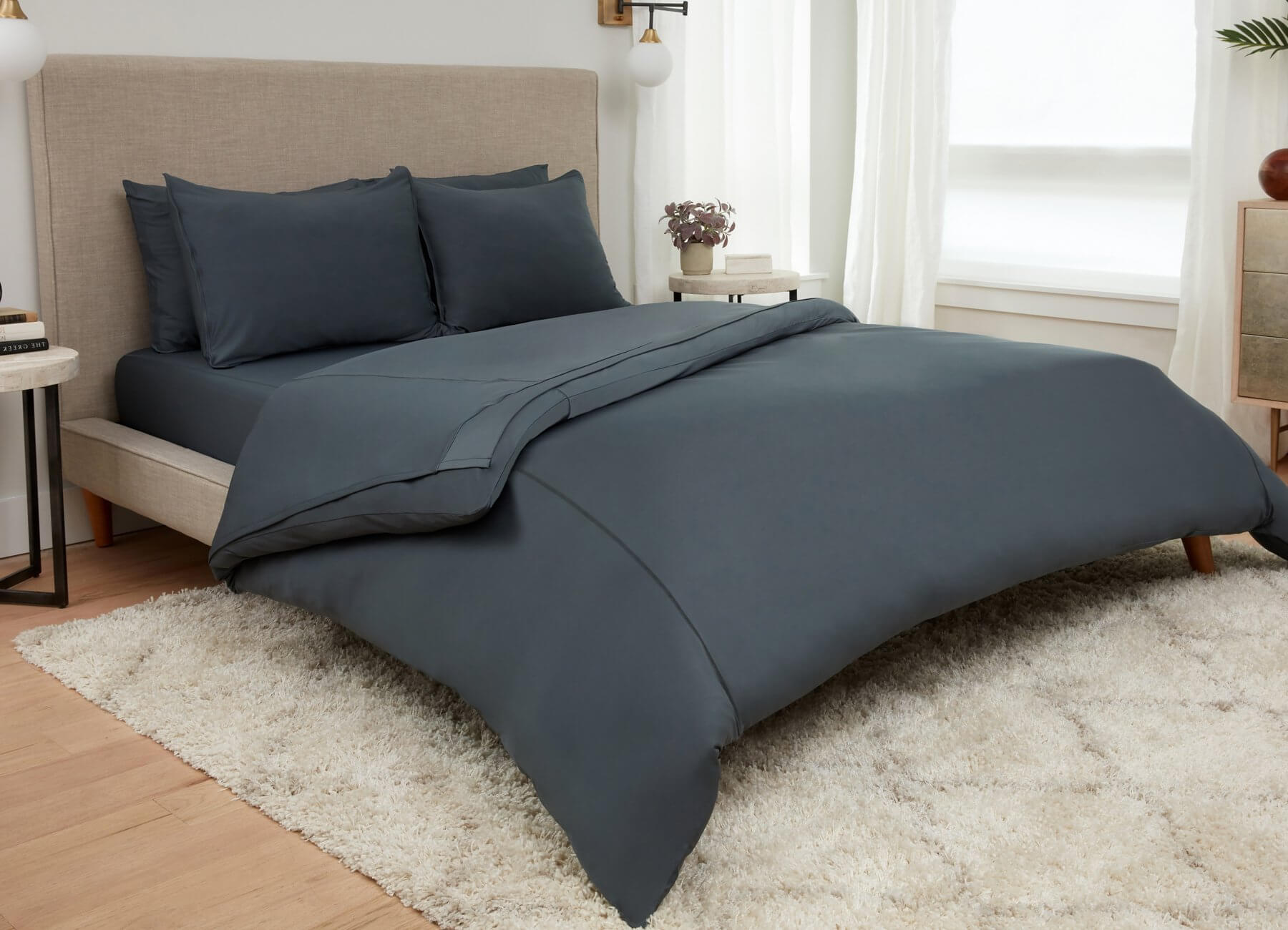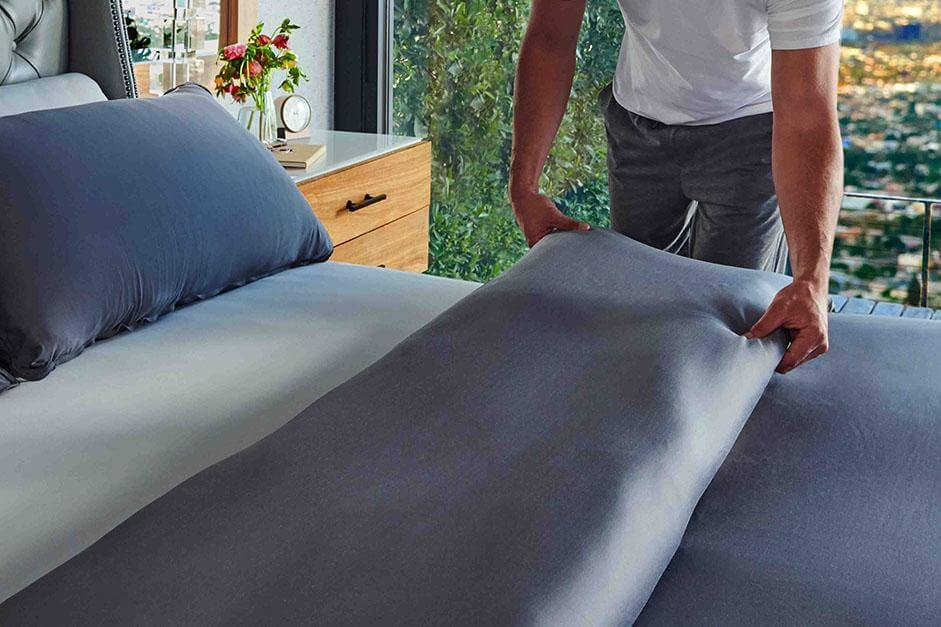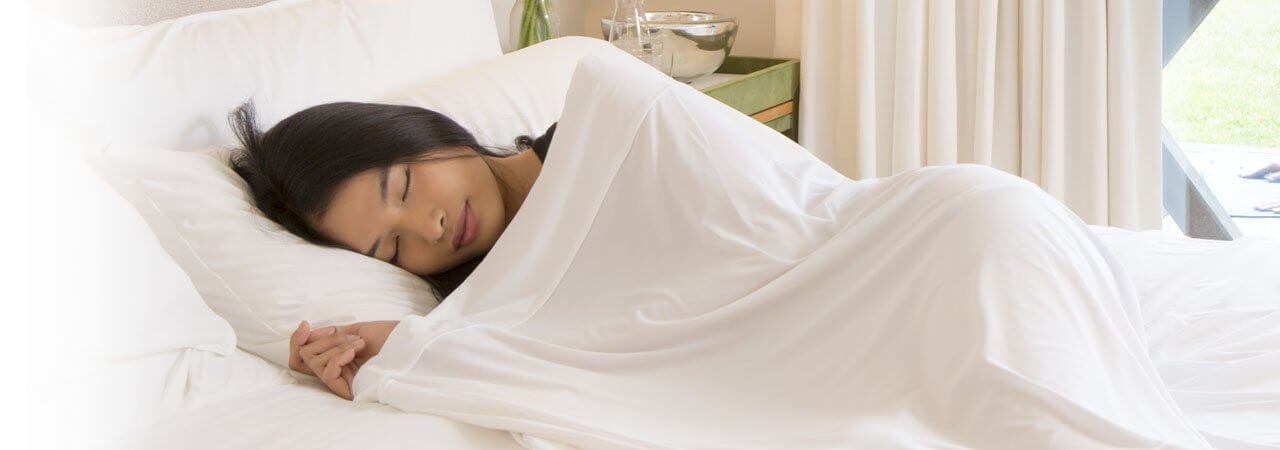Generation X are Americans born approximately between 1965 and 1980, which means their current ages range from the early 40s to the mid-50s. While all Gen Xers are experiencing the trials and tribulations of getting older — perpetual aches, wrinkles, receding hairlines, etc. — one significant, inevitable life change Gen X women have to deal with is menopause.
In this blog, we cover what menopause is, how it affects sleep, and the solutions to help alleviate menopausal problems when you're in bed.
What are Menopause and Perimenopause?
Menopause is the stage in a woman's life when your menstrual cycle stops permanently, and you can no longer get pregnant. You officially reach menopause one year after your periods have stopped.
The time leading up to your last period is called perimenopause, which can last anywhere from two to eight years. During this transitional phase, your ovaries produce less estrogen and progesterone, which are the hormones responsible for controlling menstruation. Additionally, estrogen can help protect bone health.

These hormonal changes can bring about several symptoms, including:
- Irregular periods
- Hot flashes
- Night sweats
- Mood swings
- Sleeping problems
- Depression
- Weight gain
- Vaginal dryness
Menopause and Sleep
Trouble falling or staying asleep is one of the most common symptoms during the menopausal years. According to the Centers for Disease Control and Prevention, 56% of perimenopausal women reported sleeping less than seven hours on average in a 24-hour period.
A study published in Nature and Science of Sleep suggests hot flashes are a major contributor to why menopausal women experience sleep disturbances. A hot flash is an unexpected feeling of heat that spreads throughout your body, which can make you sweat and increase your heart rate. Night sweats — or nighttime hot flashes — can cause you to wake up multiple times throughout the evening, leaving you fatigued the following day. If you experience these night sweats, try sleeping with one of our breathable, cooling comforters designed to regulate body temperature and release excess heat.

While diminishing hormone levels most likely cause hot flashes and night sweats, some other catalysts also provoke these uncomfortable, sleep-disrupting symptoms. These triggers include:
- Alcohol
- Caffeine
- Spicy foods
- Tight clothing
- Smoking
- Hot weather
- Stress and anxiety
What Can You Do to Alleviate Menopausal Sleep Problems?
The intensity, frequency, and length of hot flashes and night sweats vary from woman to woman. However, there are ways to help reduce them for fewer sleep disturbances:
- Avoid spicy food, alcohol, and caffeine before bed since they all can raise your core temperature.
- Keep your bedroom at a cool temperature, somewhere between 60 to 67 degrees.
- Wear loose, lightweight, moisture-wicking clothing like SHEEX® Performance Sleepwear.
- Consider swapping your old bedding with our ORIGINAL PERFORMANCE Sheet Set, which breaths 10x better than traditional cotton.
Whether you're a Gen X woman dealing with night sweats or a hot sleeper, SHEEX® provides cooling sheets, pillows, comforters, and more to help you get a more comfortable night's sleep.
























